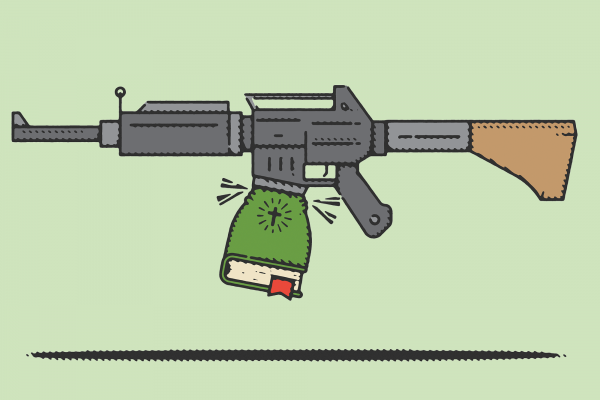WAR-CULTURE IN THE United States is so pervasive and seamless that Americans struggle to see it, much less question it. More than $16 trillion has been spent since 2001 as “the calculus of 9/11 led to runaway growth in military spending,” according to the National Priorities Project. Forget Biden’s drawdown in Afghanistan and realistic proposals emphasizing diplomacy and economic cooperation. Secretary of Defense Lloyd J. Austin III declared in June that the $752.9 billion request in the FY 2022 military budget aligned with “the will of the American people.” What role do Christians play in this destructive reality?
Here is the problem: Religion and violence intertwine to fuel our ubiquitous war-culture. And in making war “sacred,” the death-dealing consequences are concealed from our consciousness.
Consider a common vehicle decal. A U.S. soldier stands silhouetted before an American flag shaped as angelic wings. The text reads: “Greater love has no one than this, that someone lay down his life for his friends” (John 15:13, ESV). Another popular meme says, “Remember that only two forces ever agreed to die for you—Jesus Christ and the American soldier.”
The decal verse is ripped out of context. Jesus’ soliloquy is on servant leadership, characterized by the loving washing of one another’s feet—not killing. Religious frameworks are hijacked to place a “sacred canopy” of meaning over the use of deadly force. For Christians, cognitive dissonance should abound. However, using the Bible to bless war is so common we hardly question it.
Read the Full Article

